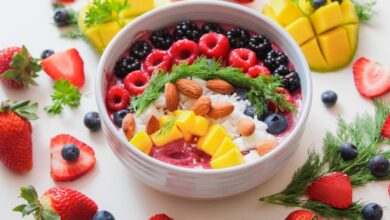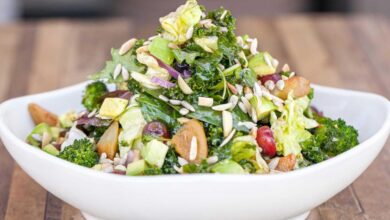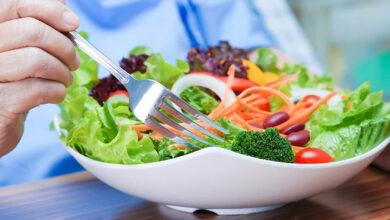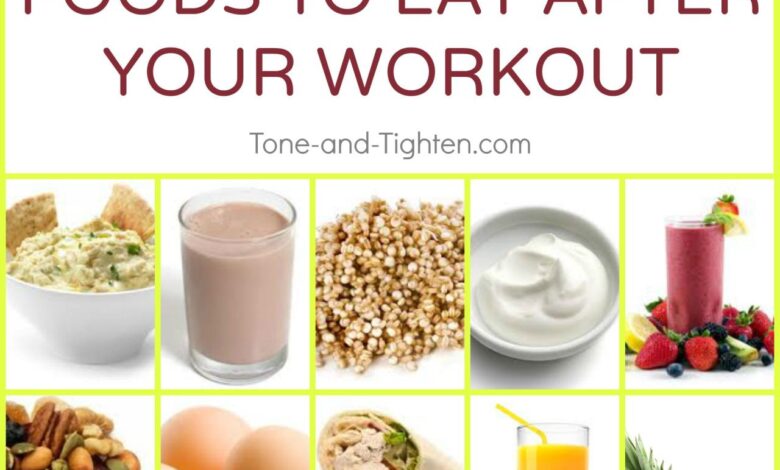
Ideal Recovery Meals for Different Workouts: Fuel Your Body Right
Ideal recovery meals for different workouts are crucial for optimizing your athletic performance and overall well-being. Whether you’re lifting heavy weights, pounding the pavement, or finding your flow in yoga, your body needs specific nutrients to repair muscle tissue, replenish energy stores, and prepare for your next workout.
This guide dives into the science behind recovery nutrition, exploring the ideal meals for various workout types and providing practical tips to help you fuel your body for optimal results.
Imagine a world where your body feels energized, your muscles recover faster, and your workouts become more productive. That’s the power of proper recovery nutrition. We’ll break down the essential macronutrients, identify key nutrients, and offer sample meal plans and recipes to help you create a personalized recovery strategy tailored to your unique needs.
Common Recovery Meal Mistakes
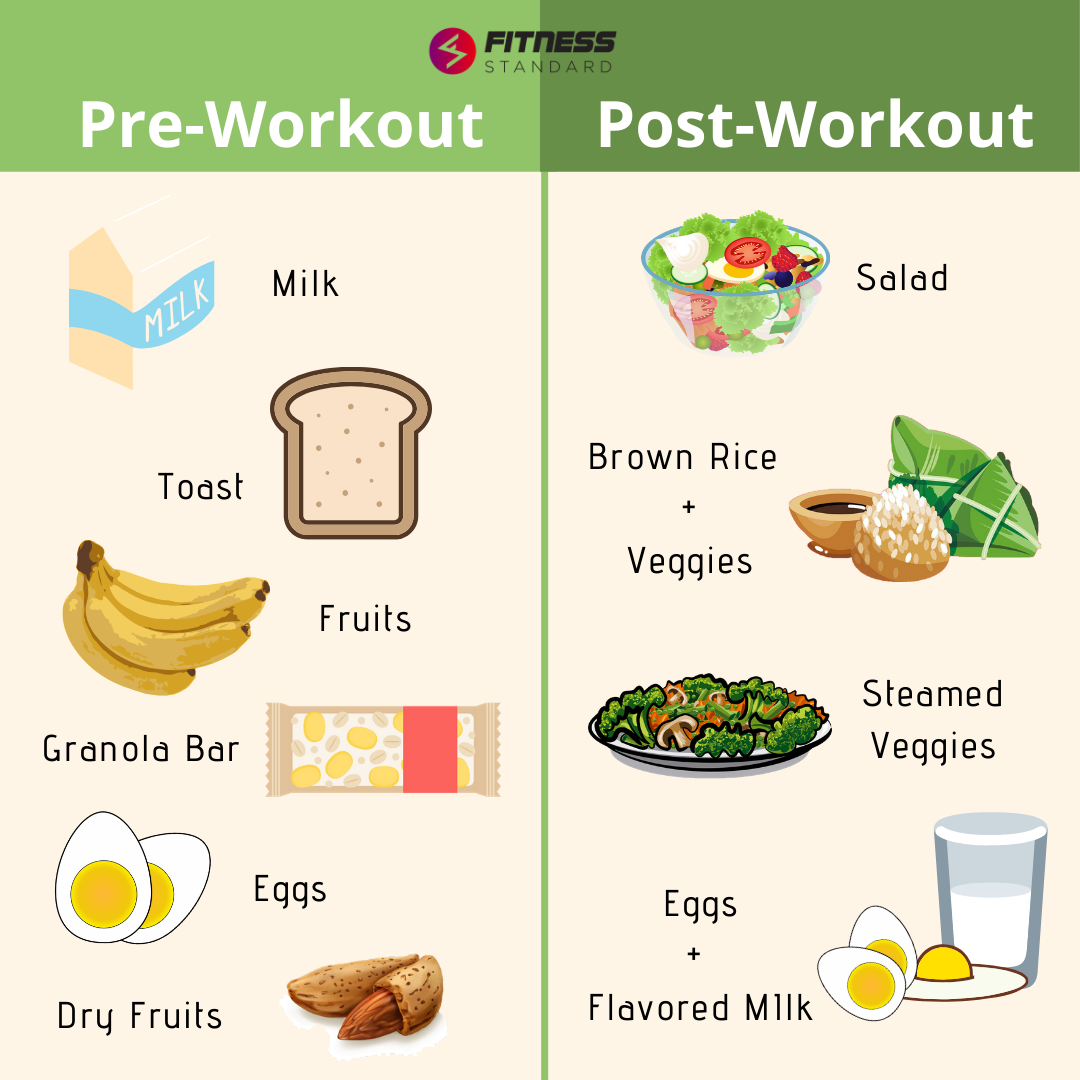
You’ve just finished a great workout, feeling the burn and knowing you’ve pushed yourself. Now, it’s time to refuel and help your body recover. But before you dive into that post-workout meal, it’s crucial to avoid some common mistakes that can hinder your recovery and limit your progress.
Finding the perfect recovery meal after a workout can be a challenge, especially when considering the impact of different ingredients on your body. Some people swear by protein-packed meals, while others prefer carb-heavy options. And then there’s the whole “is fake meat healthier than the real thing” debate, which can make meal planning even more confusing.
This article offers some insights into the pros and cons of plant-based meat alternatives, which might be helpful when choosing your post-workout fuel. Ultimately, the best recovery meal is the one that supports your individual needs and preferences, so experiment and find what works best for you.
Skipping Recovery Meals
Skipping recovery meals is a common mistake that can have significant consequences. Your body needs nutrients to rebuild muscle tissue, replenish energy stores, and repair any damage caused by exercise.
- Delayed Muscle Recovery:When you skip meals, your body doesn’t have the necessary building blocks to repair muscle fibers, leading to slower recovery and potential muscle soreness.
- Reduced Performance:Without adequate fuel, your body will struggle to recover and prepare for your next workout, potentially impacting your energy levels and performance.
- Increased Risk of Injury:When your body is depleted, it becomes more susceptible to injuries.
It’s essential to eat within 30-60 minutes after your workout to maximize recovery benefits.
Over-Consuming Simple Carbohydrates, Ideal recovery meals for different workouts
While simple carbohydrates, like white bread and sugary drinks, provide a quick energy boost, they can lead to a rapid spike in blood sugar levels followed by a crash, leaving you feeling sluggish and hindering recovery.
- Blood Sugar Fluctuations:Simple carbohydrates can cause significant fluctuations in blood sugar levels, making it difficult for your body to regulate energy levels and recover effectively.
- Increased Inflammation:High sugar intake can contribute to inflammation, potentially delaying recovery and hindering muscle repair.
- Weight Gain:Excessive simple carbohydrate consumption can lead to weight gain, particularly if you’re not burning those calories through regular exercise.
Focus on complex carbohydrates, such as brown rice, quinoa, and sweet potatoes, which provide sustained energy release and support muscle recovery.
Finding the right recovery meal after a workout depends on the intensity and type of exercise. For a tough leg day, I love to replenish my energy with a big bowl of slow cooker vegan mashed sweet potatoes. The slow cooker makes them extra creamy, and the sweet potatoes provide complex carbs and fiber, perfect for muscle recovery.
Whether it’s a yoga session or a high-intensity interval training, choosing the right recovery meal is crucial for optimal performance and overall well-being.
Neglecting Protein Intake
Protein is essential for muscle growth and repair. Inadequate protein intake after a workout can limit your body’s ability to rebuild muscle tissue and optimize recovery.
Figuring out the ideal recovery meals for different workouts can be a fun challenge! Whether you’re a runner, lifter, or yogi, getting those carbs back in is crucial. But if you’re following a low-carb diet, why quality of carbs matters becomes even more important.
Opting for nutrient-dense options like sweet potatoes, quinoa, or even a small serving of fruit can help you recover effectively while staying true to your dietary goals. Remember, fueling your body after a workout is key to seeing those gains, whatever your training style!
- Muscle Breakdown:Without sufficient protein, your body may start breaking down existing muscle tissue to provide amino acids for repair, hindering your progress.
- Slower Recovery:Insufficient protein intake can lead to slower muscle recovery and increased soreness.
- Reduced Strength and Power:Protein is crucial for building and maintaining muscle mass, which directly impacts your strength and power.
Aim to consume 20-30 grams of protein within 30-60 minutes after your workout to maximize muscle recovery and growth.
Ignoring Hydration
Water is essential for countless bodily functions, including regulating temperature, transporting nutrients, and flushing out waste products.
- Dehydration:Dehydration can hinder muscle recovery, increase fatigue, and even lead to cramps and injuries.
- Reduced Performance:Dehydration can significantly impact your performance, leading to decreased energy levels and slower recovery times.
- Impaired Nutrient Absorption:Water is crucial for proper digestion and nutrient absorption, ensuring your body can utilize the nutrients from your recovery meal.
Make sure to drink plenty of water before, during, and after your workout to stay hydrated and support recovery.
Recovery Meal Recipes: Ideal Recovery Meals For Different Workouts
Fueling your body after a workout is crucial for muscle recovery and overall health. Recovery meals should be packed with nutrients to replenish energy stores, repair muscle tissue, and promote optimal performance. Here are some easy and healthy recovery meal recipes that you can incorporate into your post-workout routine.
Smoothie Recipes
Smoothies are a convenient and delicious way to get a quick dose of protein, carbohydrates, and electrolytes after a workout.
- Banana and Berry Smoothie:Blend 1 frozen banana, 1 cup mixed berries, 1 scoop protein powder, 1/2 cup almond milk, and a pinch of cinnamon. This smoothie is a great source of potassium, antioxidants, and protein.
- Green Recovery Smoothie:Combine 1 cup spinach, 1/2 cup pineapple chunks, 1/2 cup Greek yogurt, 1/4 cup water, and 1/2 scoop protein powder. This smoothie provides a boost of vitamins, minerals, and protein for muscle recovery.
Protein Shake Recipes
Protein shakes are a simple and effective way to replenish protein stores after a workout.
- Chocolate Peanut Butter Protein Shake:Mix 1 scoop chocolate protein powder, 1 tablespoon peanut butter, 1/2 cup milk, and 1/4 cup ice. This shake is a delicious and satisfying way to get your protein fix.
- Vanilla Almond Protein Shake:Blend 1 scoop vanilla protein powder, 1/2 cup almond milk, 1/4 cup unsweetened almond butter, and a handful of ice. This shake is a healthy and refreshing option for post-workout recovery.
Other Quick and Nutritious Recovery Meal Options
Here are some other quick and nutritious recovery meal options that you can try:
- Grilled Chicken and Sweet Potato:Grilled chicken breast is a lean source of protein, while sweet potato provides complex carbohydrates and fiber. This meal is easy to prepare and can be enjoyed hot or cold.
- Tuna Salad Sandwich:Tuna is a great source of protein and omega-3 fatty acids. Combine tuna with your favorite salad ingredients and enjoy on whole-grain bread for a filling and nutritious recovery meal.
- Quinoa Salad with Grilled Vegetables:Quinoa is a complete protein and a good source of fiber. Combine quinoa with your favorite grilled vegetables, such as bell peppers, zucchini, and onions, for a healthy and flavorful recovery meal.
Closing Summary
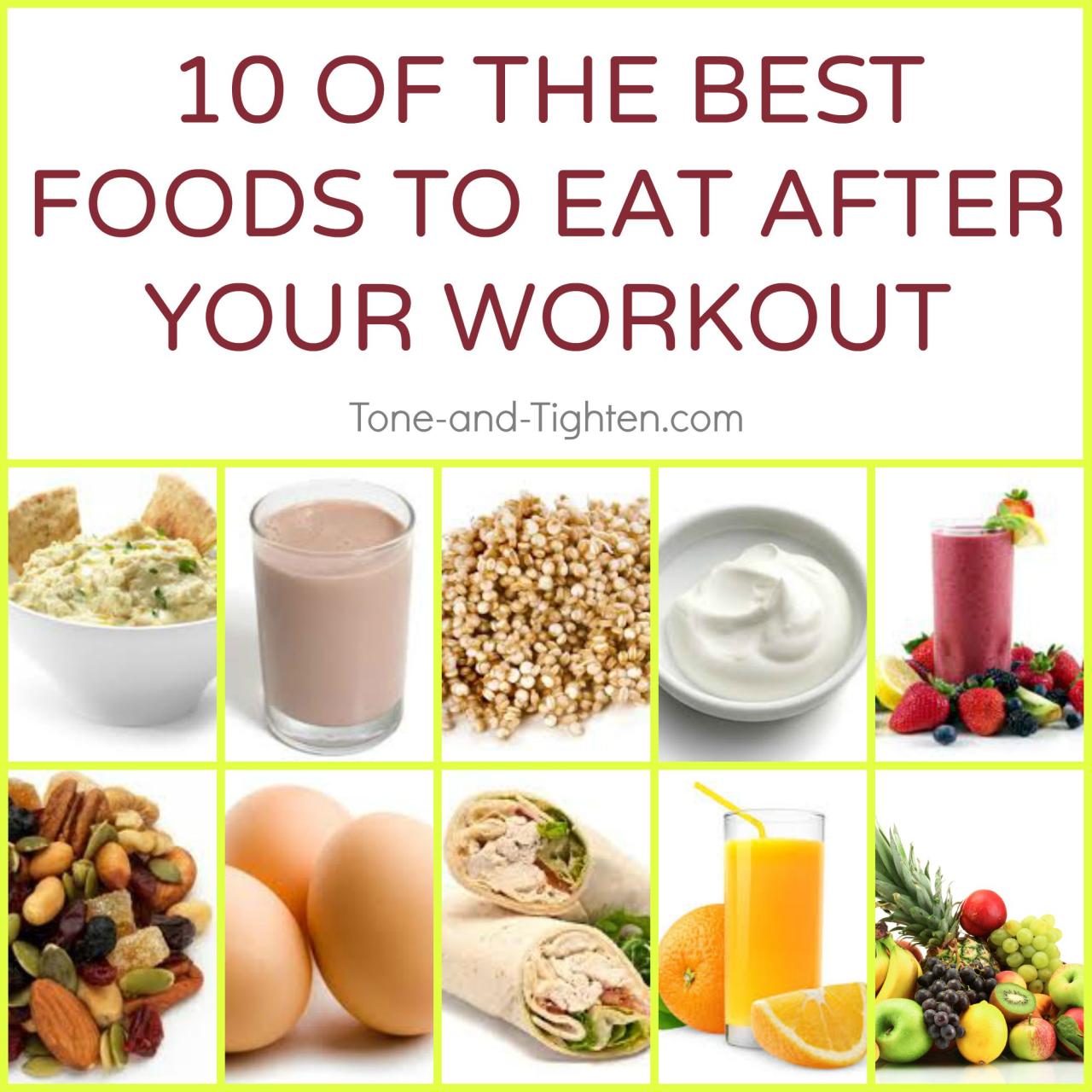
The journey to peak performance begins with understanding how to fuel your body both before and after a workout. By prioritizing recovery nutrition, you’re not only supporting your muscles but also investing in your overall health and well-being. Remember, every workout is an opportunity to push your limits and grow stronger.
Make sure your recovery meals are aligned with your goals, and watch as your body transforms and your performance soars.

